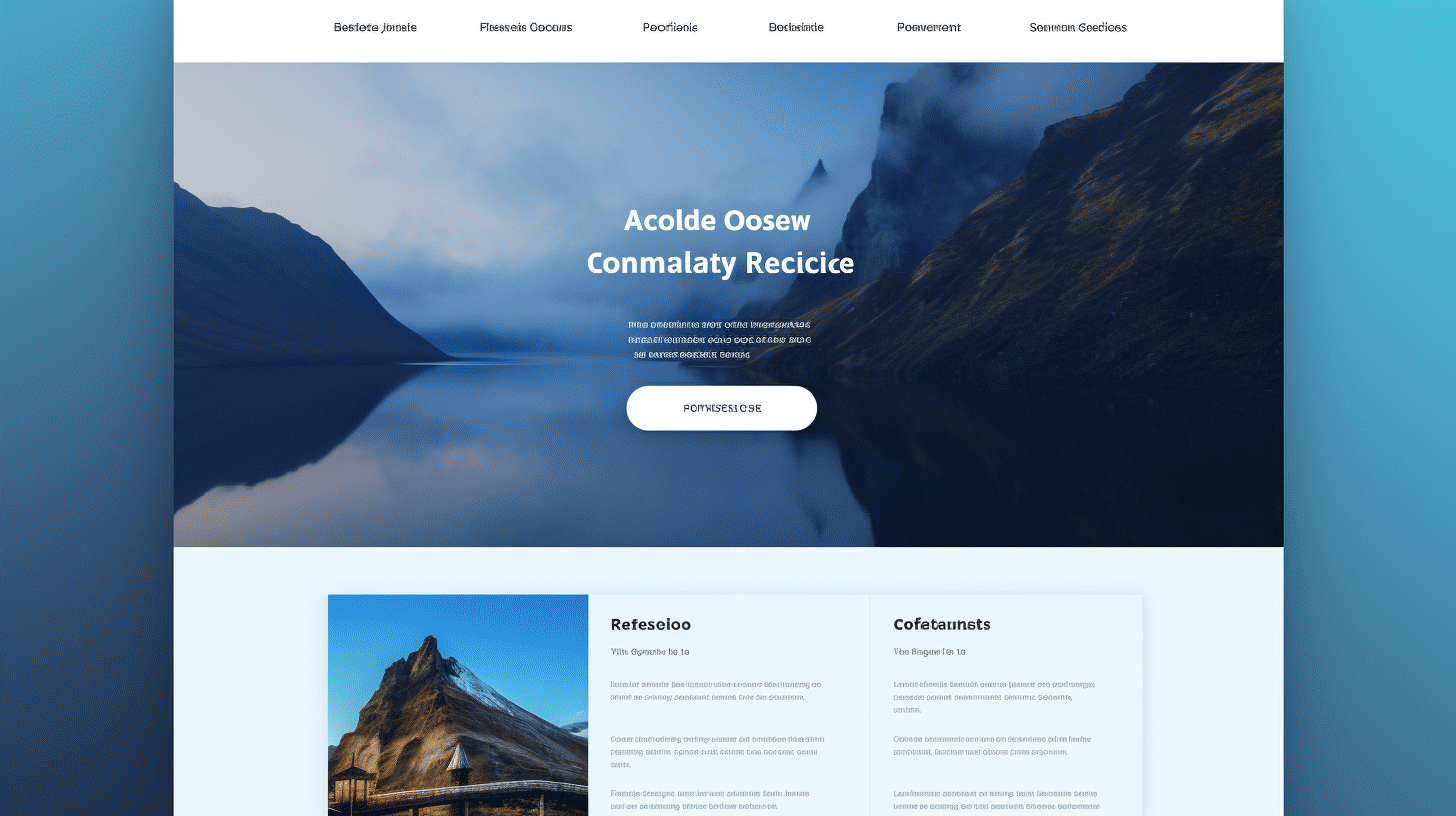在当今的数字时代,拥有强大的在线形象对于企业蓬勃发展至关重要。任何成功的在线形象的核心都是搜索引擎优化 (SEO)。SEO 是一种优化网站的做法,使其在搜索引擎结果页面 (SERP) 中排名更高,让潜在客户更容易发现您的品牌。
然而,SEO 格局在不断发展,保持领先地位是主导 SERP 格局的关键。在本文中,我们将深入探讨高级 SEO 技术,这些技术可以帮助您获得最高排名、最大化自然流量并超越竞争对手。
从了解当前趋势和统计数据到探索适合小型企业的新型 SEO 技术,我们将涵盖全面 SEO 策略的所有基本方面。无论您是经验丰富的专业人士还是刚刚开始 SEO 之旅,本文都将为您提供在瞬息万变的 SEO 世界中脱颖而出所需的见解和工具。
因此,让我们深入研究并发现可将您的品牌推至搜索引擎结果顶部的高级 SEO 技术!🚀
当前 SEO 形势:趋势和统计数据
当前的 SEO 格局在不断发展,新的趋势和统计数据影响着企业针对搜索引擎优化网站的方式。了解这些趋势和统计数据对于在竞争激烈的在线市场中保持领先地位至关重要。在本节中,我们将探讨影响当今 SEO 策略和结果的一些关键领域。
优质内容和反向链接
- 高质量的内容和权威的反向链接仍然是实现高 SEO 排名的关键因素。
- 搜索引擎优先考虑那些向用户提供有价值且相关内容的网站。
- 来自信誉良好来源的反向链接表明了可信度和可靠性,从而提高了网站在自然搜索结果中的排名。
搜索意图
- 搜索意图近年来已成为一个重要的排名因素。
- 搜索引擎旨在提供与用户搜索查询意图相符的结果。
- 了解和优化不同的搜索意图类别(例如信息、导航、交易或商业)可以帮助提高知名度并吸引合适的受众。
搜索市场份额
- 谷歌在搜索引擎市场占据主导地位,截至 2021 年,其份额高达 91.55%。
- 虽然 Bing 和 Yahoo 等其他搜索引擎都有自己的用户群,但企业应该主要专注于针对 Google 进行优化,以最大限度地提高其在线知名度。
“有关如何实现 SERP 排名的详细信息,请参阅 实现 SERP 排名.”
首页排名的重要性
- 对于企业来说,在搜索结果第一页占据一席之地至关重要。
- 只有 0.63% 的 Google 搜索者会浏览第一页以外的内容,这凸显了高排名对于推动自然流量的重要性。
自然流量增长
- SEO 在推动网站自然流量方面发挥着关键作用。
- 约 61% 的营销人员认为 SEO 对于他们的入站营销策略至关重要,并认识到其在吸引有价值的潜在客户和客户方面的有效性。
SEO中的视频
- 视频内容已成为 SEO 策略不可或缺的一部分,86% 的企业利用它来提升他们的在线形象。
- 在网页上添加视频可以增加参与度并吸引更多用户,最终提高搜索引擎排名。
EAT 和 SEO
- EAT 代表专业性、权威性和可信度,是良好 SEO 的关键方面。
- 搜索引擎,尤其是谷歌,优先考虑那些内容具有专业性、权威性和可信度的网站。
- 建立 EAT 可以增强网站的可信度并有助于提高其排名。
人工智能对SEO的影响
- 人工智能 (AI) 正在显著影响 SEO 策略和内容创作。
- 人工智能工具有助于分析数据、优化内容并简化 SEO 流程。
- 将 AI 纳入 SEO 策略的企业很可能在数字领域占据竞争优势。
目前全球SEO市场规模
- 2020 年全球 SEO 市场价值为 $652.5 亿美元,预计 2021 年至 2028 年的复合年增长率 (CAGR) 为 10.5%。
- 这种增长是由各行各业对在线可见性的日益增长的需求以及对有效 SEO 解决方案的需求所推动的。
当前的 SEO 格局瞬息万变。对于希望优化在线形象并实现更高搜索引擎排名的企业来说,了解 SEO 的最新趋势和统计数据至关重要。
了解黑帽 SEO 技术
介绍
在搜索引擎优化 (SEO) 领域,道德实践与那些试图操纵系统的人之间一直存在着斗争。黑帽 SEO 技术是违反 Google 等搜索引擎制定的准则的策略。这些技术可能会带来立竿见影的效果,但可能会导致长期后果,例如处罚和有机可见度的丧失。
关键词填充
最臭名昭著的黑帽 SEO 技术之一是关键词填充。这种做法涉及在网页上放置过多的关键词,以试图操纵搜索引擎排名。虽然它在 SEO 的早期可能有效,但搜索引擎在检测和惩罚关键词填充方面已经变得更加智能。
以下是关于关键词填充需要理解的几个关键点:
- 关键词堆砌会导致不自然且糟糕的用户体验,因为内容变得难以阅读和理解。
- 搜索引擎已经开发出可以识别过度和不相关的关键词使用的算法,从而降低内容的价值。
- 在您的内容中自然而策略性地使用关键词始终是实现长期 SEO 成功的最佳方法。
隐形
另一种需要注意的黑帽 SEO 技术是伪装。这种做法涉及向搜索引擎和用户呈现不同的内容。本质上,网页向搜索引擎机器人显示的内容与向实际访问者显示的内容不同。
以下是有关隐藏身份的一些重要见解:
- 伪装是一种欺骗行为,违反了搜索引擎的指南,因为它的目的是操纵搜索结果。
- 搜索引擎正在不断改进其算法,以识别和惩罚那些采用隐藏技术的网站。
- 伪装的后果可能非常严重,包括失去自然排名,甚至可能从搜索引擎索引中删除。
结论
关键词填充和伪装等黑帽 SEO 技术在数字领域的某些角落仍然盛行。但是,必须记住,应不惜一切代价避免使用这些技术。相反,应专注于实践符合搜索引擎指南的白帽 SEO 技术,并为用户提供有价值且信息丰富的内容。通过这样做,您可以为长期的 SEO 成功奠定坚实的基础,并保持良好的在线声誉。
2023 年必备的 SEO 技术
在不断发展的 SEO 世界中,保持领先地位对于确保您的网站在搜索引擎结果中排名靠前至关重要。展望 2023 年,有几种创新的 SEO 优化方法可以帮助提高您的网站排名并为您的网页带来目标流量。
关键词研究
关键词研究仍然是有效 SEO 的基石,了解目标受众使用的语言和搜索词至关重要。通过确定最相关的关键词并将其策略性地融入您的内容中,您可以提高在搜索结果中排名更高的机会。
语音搜索优化
随着语音设备和 Siri 和 Alexa 等虚拟助手的日益普及,优化网站以进行语音搜索变得比以往任何时候都更加重要。这包括理解自然语言查询并定制内容以回答用户可能提出的特定问题。
移动优先索引
随着移动设备的使用继续主导数字领域,Google 已转向移动优先索引。这意味着您的网站的移动版本现在是 Google 用于索引和排名的主要版本。确保您的网站适合移动设备、具有响应式设计和快速加载时间至关重要,以保持强大的 SEO 影响力。
本地搜索引擎优化
对于拥有实际位置的企业,优化本地 SEO 至关重要。通过声明您的 Google 我的商家列表、确保跨目录的 NAP(名称、地址、电话)信息一致以及使用特定于位置的关键字,您可以提高在本地搜索结果中的可见性。
视频营销
视频内容越来越受欢迎,搜索引擎也越来越重视视频在搜索结果中的优先地位。通过制作高质量、优化的视频并将其整合到您的网站和社交媒体平台中,您可以提高 SEO 排名,并以更具活力和互动性的方式吸引受众。
语义搜索
搜索引擎在理解搜索查询背后的上下文和意图方面变得越来越聪明。优化语义搜索内容涉及创建全面且相关的内容,这些内容不仅包含目标关键字,还涵盖相关主题并为用户提供价值。
针对 Google SERP 进行优化
Google 的搜索引擎结果页面 (SERP) 不断发展,精选摘要、知识面板和其他丰富结果占用了更多空间。通过优化您的内容以使其出现在这些功能中,您可以提高曝光率并吸引更多来自自然搜索流量的点击。
页面速度改进
页面速度是用户体验和 SEO 的关键因素。页面加载缓慢会导致跳出率上升和搜索引擎排名下降。通过优化网站性能、最大限度地缩短服务器响应时间、压缩图片和利用浏览器缓存,您可以提高页面速度并提高用户满意度。
用户体验
提供无缝的用户体验对于用户参与度和 SEO 成功都至关重要。通过优化网站的导航、设计和整体可用性,您可以让访客在您的网站上停留更长时间,降低跳出率,并提高转化的可能性。
人工智能与自动化
人工智能驱动的技术和自动化工具越来越多地用于 SEO,以简化流程并获得见解。从自动关键字研究到人工智能生成的内容,这些进步可以帮助您节省时间并做出数据驱动的决策,从而改善您的 SEO 策略。
长篇内容
深入、长篇的内容往往在搜索结果中表现更好。通过创建全面、权威的文章,详细介绍特定主题,您可以确立自己的专业知识,为读者提供价值,并增加获得高质量反向链接的可能性。
图像优化
图片可以增强网站的视觉吸引力,但也会影响 SEO。通过使用描述性文件名、alt 标签和压缩文件大小优化图片,您可以缩短网站的加载时间,让搜索引擎更易于访问您的内容。
将这些创新的 SEO 优化方法纳入您的策略可以帮助您保持领先地位并在 2023 年提高您网站的排名。通过顺应最新的行业趋势和用户期望,您可以为您的网站带来有针对性的自然流量并实现您的 SEO 目标。
有关高级 SEO 技术的更多见解和策略,请查看 创新的SEO优化方法.
适合小型企业的新型 SEO 趋势
在当今的数字环境中,保持领先地位对于希望优化其在线形象的小型企业至关重要。搜索引擎优化 (SEO) 领域不断发展,新趋势和技术不断涌现。为了确保您的小型企业在搜索引擎结果中保持可见性和竞争力,重要的是要采用可以帮助您吸引更多自然流量的新型 SEO 趋势。让我们探讨一下其中一些趋势:
适合移动设备的网站📱
随着移动设备的使用日益增多,拥有一个适合移动设备的网站不再是一种选择,而是一种必需品。Google 认识到移动优化的重要性,并将其作为搜索结果的排名因素。以下是一些需要考虑的关键点:
- 响应式设计:确保您的网站具有响应能力,这意味着它可以无缝适应不同的屏幕尺寸和设备。这提供了用户友好的体验,并提高了您在移动搜索中排名更高的机会。
- 加载时间快:移动用户经常忙碌,希望页面加载时间短。通过压缩图片、精简代码和利用浏览器缓存来优化网站的加载速度。
- 轻松导航:确保您的网站导航简单直观,让用户轻松找到所需信息。避免使用可能让移动用户望而却步的杂乱菜单和冗长的表单。
掌握 Schema 标记
架构标记是一种功能强大的工具,可让您向搜索引擎提供有关网站内容的更详细信息。通过使用架构标记实现结构化数据,您可以使用丰富的摘要增强搜索结果并提高小型企业的知名度。架构标记可以为您带来以下好处:
- 提高点击率:架构标记可显示其他信息(例如评论、评分和活动日期),从而帮助您的网站在搜索引擎结果页面 (SERP) 中脱颖而出。这些引人注目的片段可以吸引用户点击您的网站,而不是竞争对手的列表。
- 更好地理解您的内容:Schema 标记可帮助搜索引擎更好地理解内容的上下文。这使它们能够在精选摘要或答案框中显示相关信息,从而显著提高您网站的可见性和可信度。
- 增强本地搜索引擎优化:如果您的小型企业依赖本地客户,那么使用本地业务信息实施架构标记可以帮助提高您在本地搜索结果中的可见性。这包括您的地址、联系信息、营业时间和客户评论等详细信息。
了解 Google 的核心网络指标⏱️
Google 的核心网页指标是一组关注用户体验的网站性能指标。这些指标衡量网页加载速度、互动性和视觉稳定性等方面。了解和优化核心网页指标会对您的网站在搜索结果中的表现产生重大影响。以下是一些需要考虑的关键因素:
- 加载速度:确保您的网页能够快速加载,尤其是在移动设备上。优化图像、利用浏览器缓存并尽量缩短服务器响应时间以提高加载速度。
- 首次输入延迟:尽量缩短用户与网站互动(例如,点击按钮)和浏览器响应之间的延迟时间。这可以通过优化 JavaScript 和减少不必要的第三方脚本来实现。
- 视觉稳定性:防止意外的布局变化破坏用户的浏览体验。确保页面元素以可预测的方式加载,避免布局突然移动或更改。
通过跟上这些新颖的 SEO 趋势并正确实施它们,小型企业可以提高其在线知名度,吸引更多自然流量,并最终推动增长。敬请期待有关不断发展的 SEO 世界的更多见解!
跟上SEO变化
在不断发展的 SEO 世界中,保持领先地位对于维持和提高网站在 SERP 中的可见性至关重要。随着搜索引擎不断更新其算法并引入新的排名因素,跟上最新趋势和最佳实践至关重要。以下是一些关键策略,可帮助您掌握 SEO 变化:
及时了解趋势和最佳实践
要在 SEO 领域保持领先地位,了解最新趋势和最佳实践至关重要。这意味着要关注行业出版物、博客和论坛,SEO 专业人士会在这里分享见解和技巧。以下是一些可行的保持更新的方法:
- 关注 SEO 专家: 在 Twitter 和 LinkedIn 等社交媒体平台上关注行业专家和有影响力的人。他们经常分享有关不断变化的 SEO 格局的宝贵见解和最新动态。
- 订阅 SEO 新闻通讯: 订阅来自值得信赖的 SEO 出版物的新闻通讯。这些新闻通讯提供及时的更新、专家意见和策略,以帮助您有效地驾驭 SEO 格局。
- 参加SEO会议和网络研讨会: 参加 SEO 会议和网络研讨会可以让您深入了解最新的行业趋势。这些活动通常会邀请知名专家分享他们的知识并提供实用建议。
衡量网站性能
定期监控和分析网站的性能是了解 SEO 工作成效的关键。以下是需要跟踪的一些基本指标:
- 搜索排名: 密切关注您的网站在目标关键词方面的排名位置。跟踪您的排名将帮助您发现任何下降或提高,并相应地调整您的 SEO 策略。
- 自然流量: 监控您网站收到的自然流量。分析趋势并寻找任何重大变化。如果您发现自然流量下降,则可能表明需要进一步优化或 SEO 调整。
- 跳出率: 跳出率衡量的是仅浏览一页后就离开网站的访客百分比。高跳出率可能表明您的内容或用户体验需要改进。
保持领先算法更新
搜索引擎算法不断发展,为用户提供最相关、最优质的搜索结果。及时了解算法更新对于调整您的 SEO 策略并确保您的网站在搜索引擎中保持良好地位至关重要。以下是保持领先的几种方法:
- 关注官方公告: 像谷歌这样的搜索引擎巨头经常会正式发布重大算法更新。关注他们的官方公告将帮助你了解变化并采取适当的行动。
- 监控SEO社区: 加入 SEO 社区和论坛,专业人士可以在这里讨论算法更新并分享他们的经验。这些社区可以提供有价值的见解和算法变化的早期迹象。
- 定期审核您的网站: 定期对您的网站进行审核,以识别可能影响您排名的任何潜在问题。全面的 SEO 审核可以帮助您在问题对网站可见性产生负面影响之前发现并解决问题。
通过了解最新趋势、持续跟踪您网站的性能以及主动适应算法更新,您将能够成功驾驭不断变化的 SEO 环境。
请记住,SEO 是一个持续的过程,紧跟变化将确保您的网站保持优化并在搜索引擎排名中保持竞争力。所以,不要落后——随时了解情况,衡量您的表现,保持领先地位!✨
常见问题
- 有哪些先进的 SEO 技术可以主导 SERP 领域?
一些主导 SERP 领域的高级 SEO 技术包括:1. 建立高质量的反向链接,2. 针对特色片段进行优化,3. 实施架构标记,4. 提高页面加载速度,以及 5. 使用长尾关键词。
- 反向链接对于 SEO 成功有多重要?
反向链接对于 SEO 成功至关重要,因为它们向搜索引擎发出信号,表明您的网站值得信赖且具有权威性。来自信誉良好的来源的高质量反向链接可以大大提高您网站的搜索引擎排名。
- 你能解释一下什么是精选摘要以及如何优化它们吗?
精选摘要是显示在搜索引擎结果页面 (SERP) 顶部的简洁答案。要针对精选摘要进行优化,请专注于为常见用户查询提供清晰简洁的答案,使用项目符号或编号列表,并适当设置内容格式。
- 什么是架构标记以及它如何帮助 SEO?
架构标记是添加到您网站 HTML 的代码,可向搜索引擎提供有关您内容的附加信息。它可以帮助搜索引擎更准确地理解和显示您的内容,从而提高可见性和点击率。
- 页面加载速度如何影响 SEO?
页面加载速度是 SEO 的一个重要因素,因为它会影响用户体验和参与度。加载缓慢的网站会导致跳出率上升和搜索引擎排名下降。通过最小化代码、压缩图像和利用缓存技术来优化网站的性能。



















